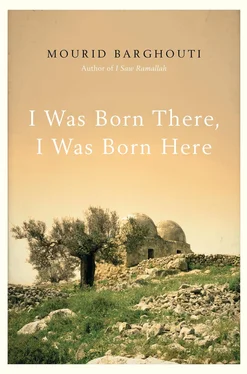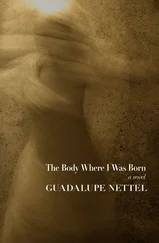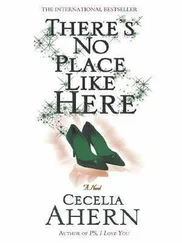“There’s no reason to be alarmed. Just a couple of questions. We’ll bring him back to you in an hour or so.”
They’re inviting him for ‘a cup of coffee,’ I told myself.
No matter the differences in terms and methods from one Arab country to another, such people are always gracious when inviting their prey to be their guests and they will always be bringing them back in an hour or so at the most. Men and women have spent decades in the cells of the Arab regimes without ever finishing that damned cup of coffee.
We got the message.
The message of fear or, rather, of intimidation.
In dictatorships, local industry’s finest product — the best made, best packaged, hardest wearing, and most quickly delivered to the home — is fear.
Helpless, Radwa and I would watch them as they took Tamim down the building staircase, their guns pointed at his back.
Thuggish authority is the same, whether Arab or Israeli. Cruelty is cruelty and abuse abuse, whoever the perpetrator.
What hurts most is the lack of a clear legal mechanism for what follows the arrest.
They don’t tell you where they’ve taken him. His place of detention remains unknown to you — such places are many and they are scattered throughout Cairo. All you can do is look through your telephone list for the name of someone influential who may be able to direct you.
As to what happens to him there, it’s no different from what any foreign occupation would do to a citizen who had the miserable luck to fall into the hands of its security forces. Humiliation, slapping, torture with hot and cold water, being hung from the ceiling with your arms behind your head, electric shocks, and sleep deprivation. None of those things may actually be done to him, but fear that they will is used deliberately to bring about the desired effect.
The night before his arrest, we were with Edward Said and his wife Mariam at the house of our friend Huda Guindi in Zamalek. Edward was talking to Tamim about his dissertation, asking him about his professors at Boston University, and telling him what he knew about them.
The following morning, Edward and Mariam were on their way to a resort on the Red Sea coast for a holiday when Edward found out via a phone call from a friend what had happened. He phoned me in the utmost fury.
“What can I do? Tell me how I can help.”
“No one can do anything, Edward. Things will take their course.”
Tamim, who had been given his rights in Palestine, a country he didn’t know, would lose them in Egypt, the only country he knew.
He was born in Cairo to an Egyptian mother and educated at Egyptian schools, from the Happy Home kindergarten to al-Hurriya School, to Cairo University, to the American University in Cairo, where he obtained his master’s degree. On arresting him, along with hundreds of other students, the Egyptian security authorities would treat him as a foreigner and ‘advise’ him to leave the country, unlike the Egyptian students, who typically would spend a few weeks or months in the detention centers, after which they would be released. If a male Egyptian marries a woman from the furthest reaches of Eskimo Land, Egyptian law automatically grants her and her children Egyptian nationality. At the time, this same right was not granted to a female Egyptian who married a non-Egyptian.
Tamim was forced to leave Egypt.
What has stayed with me from this incident was my inability to protect my son.
In Marrakech, Morocco, I was to see with my own eyes the most painful example of a father who couldn’t protect his son. When I was invited to read poetry in a number of Moroccan cities, I was accompanied by Jamal al-Durra, father of the martyred boy Muhammad al-Durra. I arrived at my hotel in Marrakech on time but Jamal al-Durra didn’t come. He didn’t come for two days after that. The Egyptian authorities had prevented his brother, who was coming by land from Gaza to accompany him, from entering Egypt to catch the Moroccan plane, which left from Cairo. Jamal cannot move on his own because his right side is packed full of bullets, some of which surgeons managed to remove and some of which remain in place. After repeated telephone calls, the Egyptian authorities allowed him to travel alone and transported his brother from the border post in the Gaza Strip directly to Cairo Airport, to make sure he didn’t spend a single hour on Egyptian territory. To the Arab regimes, the Palestinian is simply a security file. He is dealt with by the interior ministries, not the foreign ministries, as though to give meaning to the secret motto embraced by the Arab States from the Atlantic to the Gulf: “We love Palestine and hate the Palestinians.” That said, the Rafah crossing point on the Gaza-Egypt border is the ugliest embodiment of the ruthlessness of Egyptian official policy and the cruelty with which the regime treats the ordinary Palestinian citizen.
The Arab States are now living the third phase of occupation.
In the first phase, the Arab citizen lived under foreign occupation.
In the second, he was occupied by his local rulers acting as proxies for the foreigners.
And now he’s living the phase of double occupation, which is simultaneously local and foreign.
What Jamal al-Durra told me of the criminal killing of his son Muhammad in his arms added nothing to the stupefaction I’d felt when watching the scene on satellite TV. However, the muscles of his face and the look in his eyes as he spoke of his inability to protect his young son will stay in my mind for a long time.
Jamal al-Durra added one thing that made the week I spent in his company in Morocco bearable. He told me that his wife was pregnant and that he would name the new baby Muhammad so that Israel would have to go on living with Muhammad al-Durra even after it had murdered him.
At the time, Jamal al-Durra seemed strong to me, but when his younger brother helped him to take off his shirt one morning while I waited in their room to go with them to a joint appointment, I saw that his right arm was attached to his shoulder by a thin remnant of skin. A sudden spasm of embarrassment passed over his face when he noticed that I’d seen. My embarrassment at myself will last for a long time.
It is a strange irony that of three prisons in which Egyptian security would hold Tamim during the three days of his imprisonment, one was al-Khalifa/Deportations, the same prison they put me in in 1977.
Tamim sleeps in my place in the same packed communal cell. He eats the wedge of processed cheese and the crust of stale bread that they gave me as nourishment for an entire day. He sleeps as I slept, on the cement floor without a bed, and maybe a murderer or smuggler or thief next to him voluntarily gives him a blanket as one of them once did me. He makes his shoes into a pillow beneath his head as I once did.
I, who am free today, feel exactly as though they are imprisoning me for a second time.
As though I had never left their first prison.
As though I were in a never-ending prison that refuses to acknowledge any final act.
As though the prison were my personal city. This time we will live in it and grow up in it together, my son and I.
I entered the seventh decade of my life having spent only a few days in prison, and those in an Arab country ruled by an Arab dictator, not in Israel. The idea of prison constantly intrigues me though. In the mind of the dictator, prison is abstraction, not detail; an idea, not actualities — an idea that requires no proof or evidence, a personal concept, like temperament or taste, that cannot be questioned. This prison is the source of his unshakable peace of mind. And because issuing an order to put people in prison is the one solution that doesn’t need much intelligence, prison is the dictator’s first, easiest, and surest solution. The dictator will not change his mind so long as he is on his throne. He will change it when he is somewhere else (in a different world, for example), not before. The dictator’s throne is his opinion. The dictator squats on his opinion like a hen sitting on her eggs. He and his opinion carry out all the rituals of his day together, bathing, doing their morning exercises, eating, working, playing, and fucking one another. He takes his opinion with him to sleep the way he does his dog. The dictator is faithful to his opinion and his opinion is faithful to him. He and his opinion wake up at the same instant (note the coincidence!); it never leaves his side through the hours of the day and it never leaves his side through the hours of his rule, which are the hours of his life. If the dictator falls sick, or goes on holiday, or is afflicted with senile dementia, he leaves his opinion in the keeping of loyal followers, such as policemen, advisors, editors-in-chief, ministers of information, and former leftists who have seen the light after hesitation and cauterization and being beaten unconscious and hung from the ceiling. It is preferred that there be, alongside these, poets, novelists, and critics who have fought long and with tremendous courage in defense of their inalienable right to possess a flexible spine that enables them to bow, with dazzling ease, before the chamberlain of the dictator’s palace. They have held strikes and sit-ins to be allowed to assume a position in his government, that same government that is known for its wholehearted dedication to the patronage of culture and the intelligentsia (just like that, with no expectation of reward!). The dictator has a sadistic love of obedience, rewarding the obedient by doubling his efforts to humiliate them, to the point that he uses them for his entertainment every time he sees them. The worst thing about a dictator, though, is his minor underlings.
Читать дальше











